Forever Female Blu-ray Movie
HomeForever Female Blu-ray Movie 
Olive Films | 1953 | 93 min | Not rated | Jul 22, 2014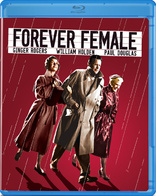
Movie rating
6.9 | / 10 |
Blu-ray rating
| Users | 0.0 | |
| Reviewer | 3.5 | |
| Overall | 3.5 |
Overview
Forever Female (1953)
Aging actress Ginger Rogers refuses to admit she is too old to play the ingenue role any longer.
Starring: Ginger Rogers, William Holden, Paul Douglas (I), Pat Crowley, James Gleason (I)Director: Irving Rapper
| Comedy | 100% |
Specifications
Video
Video codec: MPEG-4 AVC
Video resolution: 1080p
Aspect ratio: 1.37:1
Original aspect ratio: 1.37:1
Audio
English: DTS-HD Master Audio Mono
Subtitles
None
Discs
25GB Blu-ray Disc
Single disc (1 BD)
Playback
Region A (B, C untested)
Review
Rating summary
| Movie | 3.5 | |
| Video | 4.0 | |
| Audio | 4.0 | |
| Extras | 0.0 | |
| Overall | 3.5 |
Forever Female Blu-ray Movie Review
All About Clara.
Reviewed by Jeffrey Kauffman July 25, 2014Two of the most famous films ever made about the vagaries of show business premiered within months of each other over the course of the late summer and early fall of 1950. While one of these films dealt with the legitimate theater (pronounced the- ah-tuh, of course), and the other with Hollywood, both featured leading characters who were actresses coming to terms with the passage of time. All About Eve gave Bette Davis one of her most iconic roles as Margo Channing, erstwhile Broadway legend who finds her legacy threatened by an upstart young actress named Eve Harrington (Anne Baxter). Sunset Boulevard gave Gloria Swanson what is arguably the most iconic role of her long career as Norma Desmond, one time silent film great whose mental acuity is fogged by years away from the limelight and burgeoning delusions about a comeback. While each of these films had a certain dark humor about them, both rest firmly in dramatic territory, despite All About Eve’s often acerbic and ebullient wit. Three years after these films opened, a much less well remembered film appeared that dealt in many of the same basic issues, but from a supposedly completely comic standpoint. Despite the involvement of Sunset Boulevard’s William Holden, Forever Female, while affable enough and even passably humorous at times, is nowhere near the same sort of classic that both of the aforementioned 1950 films undoubtedly are.
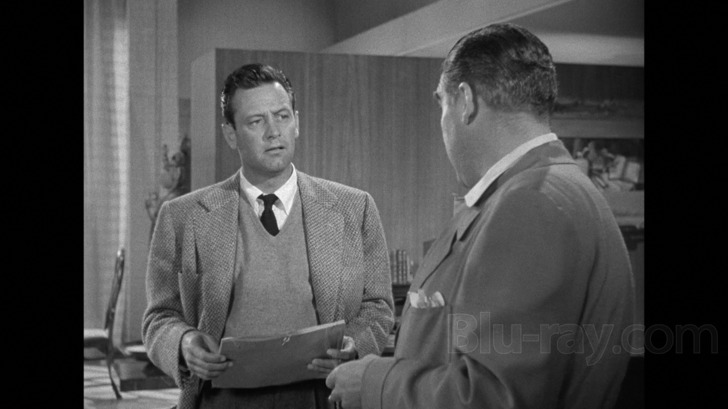
Beatrice Page (Ginger Rogers) might not have quite the snarky attitude of a Margo Channing, but she’s a Broadway A-lister who doesn’t take kindly to anything other than rapturous applause when she waltzes on stage, or indeed into Sardi’s after the opening of her latest play, a clunker produced by ex-husband Harry Phillips (Paul Douglas). In one of Forever Female’s nice riffs on show business culture, instead of a gaggle of fawning acolytes praising the star and the show, we’re instead shown a relatively more realistic aggregation of bitter souls who can’t wait to read the withering reviews the show is sure to get. In the crowd is young playwright Stanley Krown (William Holden), whose new agent Eddie Woods (James Gleason) is a friend of Harry and Bea’s and who invites the lad over to meet the iconic star and her equally famous ex husband.
Stanley, who insists that he always has to say what’s on his mind (come hell or high water, or indeed the umbrage of Broadway divas), gives a devastatingly honest appraisal of Bea’s performance in the play, one that admits her charms while not denying her shortcomings. The actress takes it all in stride, at least relatively well, though it doesn’t seem to disappoint her that much when Stanley demurs an invitation to stay at the table and have a drink with the insiders. He does leave his new play behind, supposedly accidentally, and Harry asks Eddie if he can keep it and read it, just for curiosity’s sake.
In what is a patently predictable plot element, it of course turns out that Stanley's play is the perfect new vehicle for Bea--except that it really isn't. The play deals with the supposedly hilarious interplay between a mother and a daughter, and Bea, who has a thing about her age, thinks she should play the daughter. Forever Female has already made a joke about Bea trying to pass for 29 (in an onstage role) when even passing for 39 might be something of a stretch, but what she's proposing strikes Stanley as downright ludicrous. When Harry makes a couple of friendly suggestions while hinting that this could be the big break Stanley is waiting for, rewrites begin to make the daughter 29, so that Bea can "properly" play her.
In the meantime, an ambitious ingenue named Sally Clark (Pat Crowley, Golden Globe winner for this role) has been hanging around making a nuisance out of herself. It's patently obvious she should be playing the daughter, but with Bea's force of personality and Harry acquiesing, perhaps hoping to rekindle some romantic sparks with his ex-wife, it doesn't seem to be in the cards, despite the fact that Sally keeps changing her name to make her more showbiz friendly. (The "Clara" alluded to above in the review title refers to Sally's real name.)
In some interesting riffs on material covered much more pointedly in All About Eve, Bea's jealousy starts to get the better of her when Stanley hires Sally as a secretary of sorts. There's a reverse plot machination here that gets Sally stuck out of town, in the hopes that Bea can triumph, but critics will be critics and it looks like Stanley's play is headed for the ash heap of history. Wiser heads of course prevail, and all is as it should be as Forever Female comes ambling to a pleasant if hardly earth moving close.
And that's the problem with Forever Female: it's pleasant, nothing more, nothing less. Rogers is surprisingly good as a hardbitten show business vet, and her interplay with both Douglas and Holden is realistic and nicely nuanced. Holden is yet again the aspiring writer in this piece, but at least he doesn't end up on the bottom of a swimming pool this time. The real sparks here are provided by Crowley, who really never got the film career she probably deserved. She became a television staple in the late fifties and sixties, and Baby Boomers will probably remember her as the harried mother in the two season sitcom culled from Jean Kerr's own Broadway hit (later a popular film) Please Don't Eat the Daisies.
But "pleasant" just doesn't elevate this material to the heights of its trenchant forebears, and Forever Female can't quite escape the twin shadows of All About Eve and (to a lesser extent, despite Holden's participation) Sunset Boulevard. It's a sweet enough film, but there's none of the really delicious wit or even melancholy that made the other two films so completely unforgettable. This the equivalent of the sort of stage show ticket brokers would sell to theater parties or groups of tired businessmen--you're going to get a decent evening's entertainment without one hint of ambition or controversy, and everything will go down as easy as pie, exactly as expected.
Forever Female Blu-ray Movie, Video Quality 
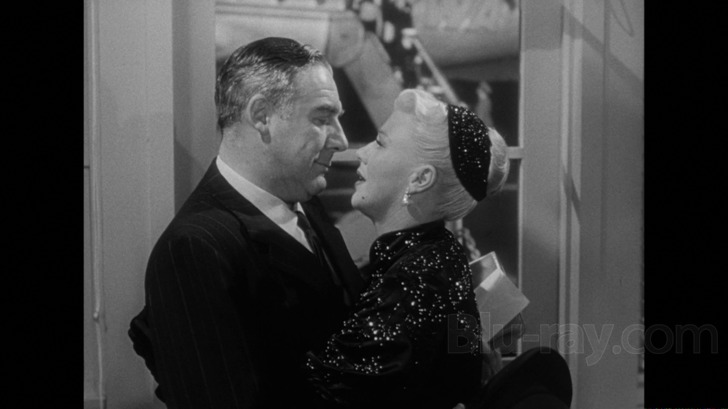
Forever Female is presented on Blu-ray courtesy of Olive Films with an AVC encoded 1080p transfer in 1.37:1. Aside from a few problematic moments that have a somewhat more ragged appearance, this is by and large a very commendable effort, offering excellent contrast, deep blacks and nicely modulated gray scale. Contrast is just slightly variable at times, and there are some scenes that may have been sourced from an alternate element. Damage is rather minimal here, relegated to the usual things like scratches and occasional larger blemishes. There are some great location shots of New York, specifically the theater district, but considering the fact that one of the more prominent marquees is for the flop musical Seventeen, which opened and closed over the course of just a few months in 1951, this may be stock footage. As with virtually all Olive releases, there's neither restoration nor digital tweaking in evidence here.
Forever Female Blu-ray Movie, Audio Quality 
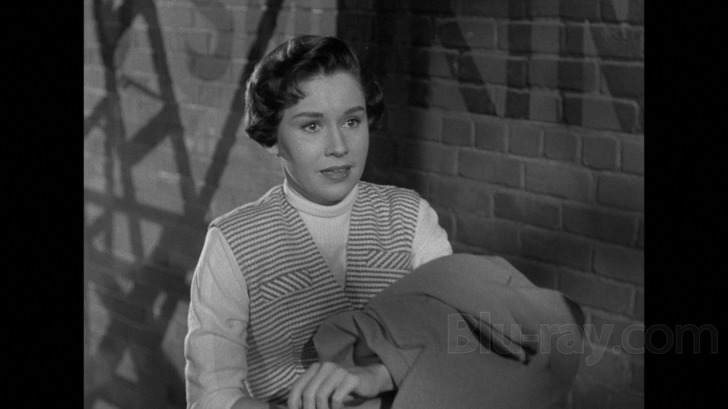
Forever Female's lossless DTS-HD Master Audio Mono overcomes a bit of boxiness and an errant pop or two to provide more than adequate support for this almost exclusively dialogue driven film. Fidelity is fine, and the midrange is nicely full. No signs of problematic damage other than expected age related wear and tear ever show up.
Forever Female Blu-ray Movie, Special Features and Extras 
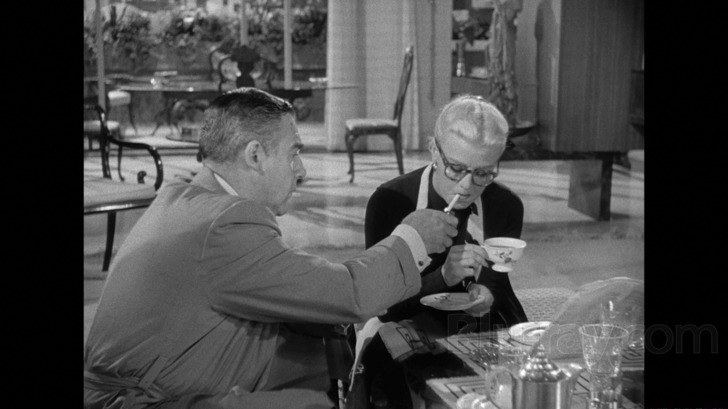
This Blu-ray disc has no supplemental material.
Forever Female Blu-ray Movie, Overall Score and Recommendation 
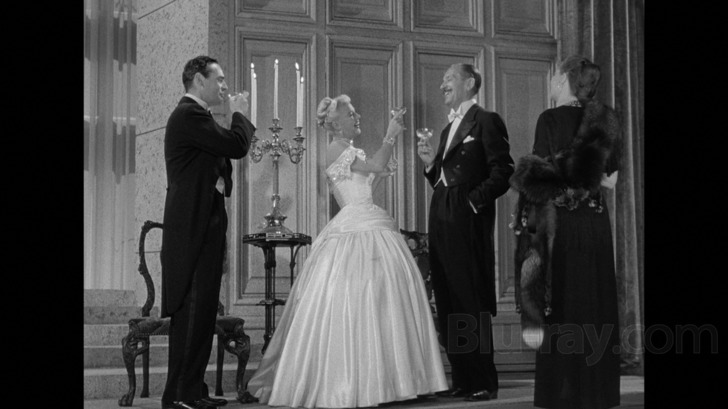
Much like Pat Crowley herself, Forever Female is cute, but that cuteness pales when one considers the bite of both All About Eve and Sunset Boulevard. The film does offer a relatively realistic look at some of the backbiting that goes on in professional show business circles, but in other ways, it's completely fanciful, something like a fairy tale cobbled together out of various elements (the screenplay is ostensibly based on a play by Peter Pan author J.M. Barrie, which just goes to show you the more things change, the more they stay the same, at least in theater). While nowhere near the level of the two 1950 films, Forever Female has a lot of star power, and this may in fact be Crowley's best screen role. Recommended.
Similar titles
Similar titles you might also like

Stand-In
1937

Joan Rivers: A Piece of Work
2010

Stage Door
1937

The Rewrite
2014

The Thrill of It All!
1963

He Said, She Said
1991

Baby Boom
1987

Postcards from the Edge
1990

Second Act
2018

Twentieth Century
1934

Woman of the Year
1942

Thank Your Lucky Stars
Warner Archive Collection
1943

Isn't She Great
2000

Café Society
2016

Irreconcilable Differences
1984

Nothing in Common
1986

Morning Glory
2010

The Cheap Detective
1978

Baby Mama
2008

Love Before Breakfast
1936